The installation of Sándor Zán Fábián was held in a packed church on Saturday, January 28. In addition to the bishops and lay presidents from the Reformed Church of the Carpathian Basin, the event was attended by leaders of state and civil organizations from Hungary and Transcarpathia.
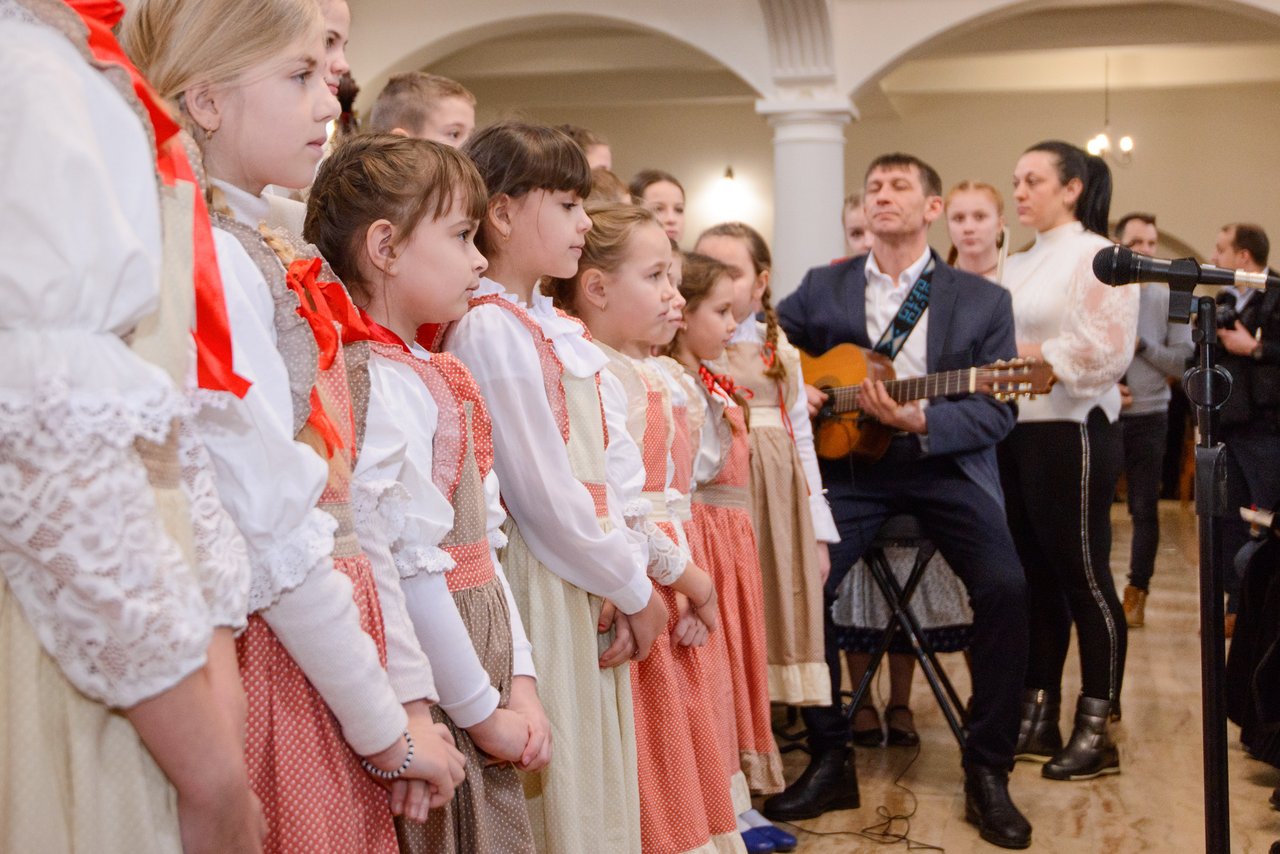
The election in the Reformed Church in Transcarpathia (KRE) took place in 2022 under wartime conditions, almost a year after the Russian-Ukrainian conflict erupted. This fact left its mark on this church event. The recent months have not been a smooth period, but God has seen His people through many trials. Following the inauguration of the presbytery leaders, the newly elected bishop and members of the Synod were installed at the church district assembly on January 28.
The Berehovo Reformed Church was fully packed for this event. Women sat in pews wearing Nagydobrony-style folk costumes, while songs about the faith and love of the young people from Mezővár played as a testimony to the importance of the future alongside the importance of traditions past. God takes care of this part of the Hungarian nation, carrying it through these challenging times.
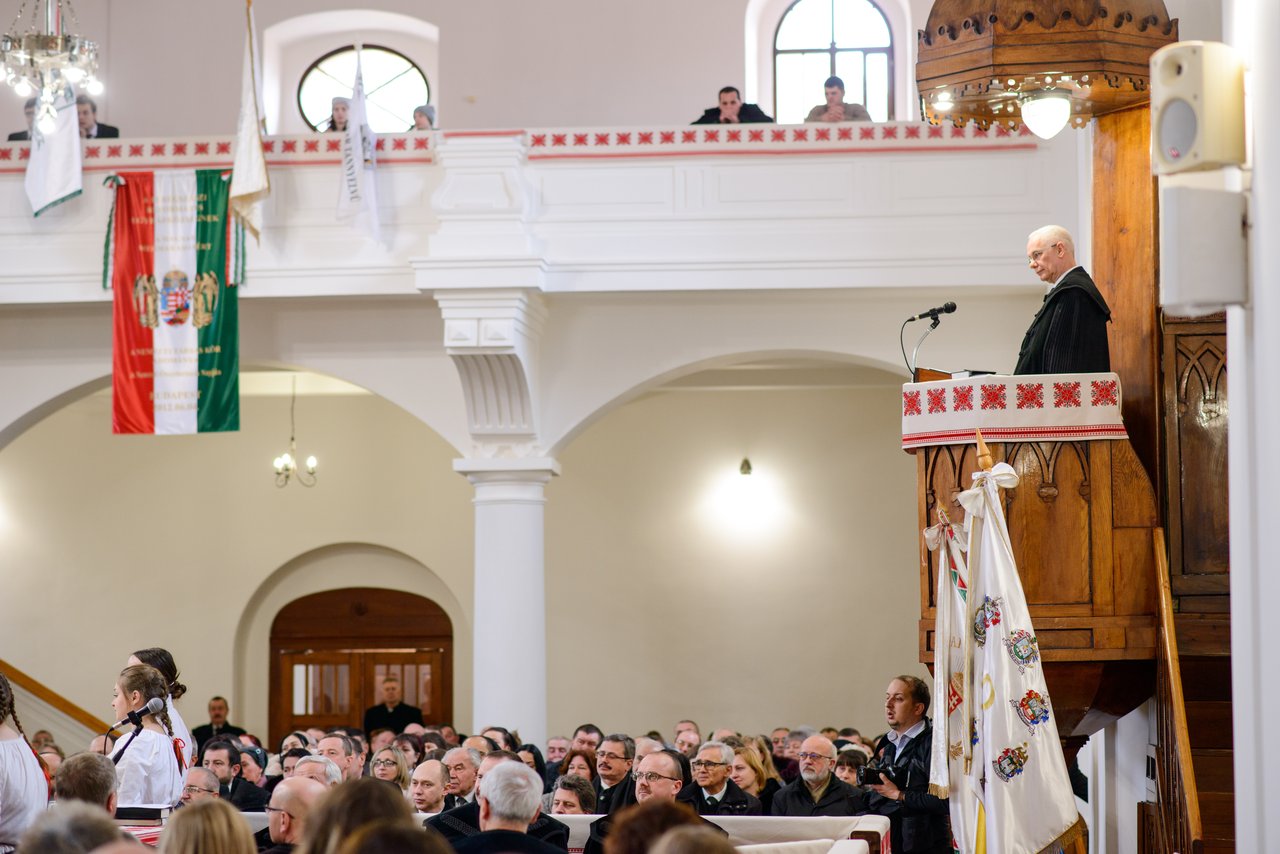
Following a prayer given by the Transylvanian Bishop Béla Kató, Bishop Zoltán Balog, the ministerial president of the Synod of the Reformed Church in Hungary, expressed support for the participants and the church leadership being installed. In his sermon, Bishop Balog encouraged the present-day participants with God’s promise written about 2500 years ago in the book of Isaiah: "Do not fear, for I am with you; do not be dismayed, for I am your God. I will strengthen you and help; I will uphold you with my righteous right hand..." (Isa 41:10).
Referring to the conflict in Ukraine, Zoltán Balog pointed out in his sermon that eventually we will all stand before the judgment seat of God, including leaders of countries and those at war today. The bishop stated that "those who rule unjustly will fall to dust," as we have seen so many times in history. But God's people always have a task. "Repent, for the kingdom of heaven has come near" - this is a message we must share, as our ancestors did when they spoke out against Stalin. Despite facing years and decades in prison, in the Gulag, they did not break.
Zoltán Balog recalled that the awakening of the 1990s in Transcarpathia was born out of their faith, saying "as their faith kept them alive, so it keeps us alive today." He spoke with appreciation for those who faithfully stand their ground today, and expressed his gratitude for the pastors who, despite the war, remain in their places, serving God and guarding the flocks entrusted to them. "It is your faithfulness that teaches us. We draw strength from this faith, loyalty and steadfastness," said Bishop Balog.
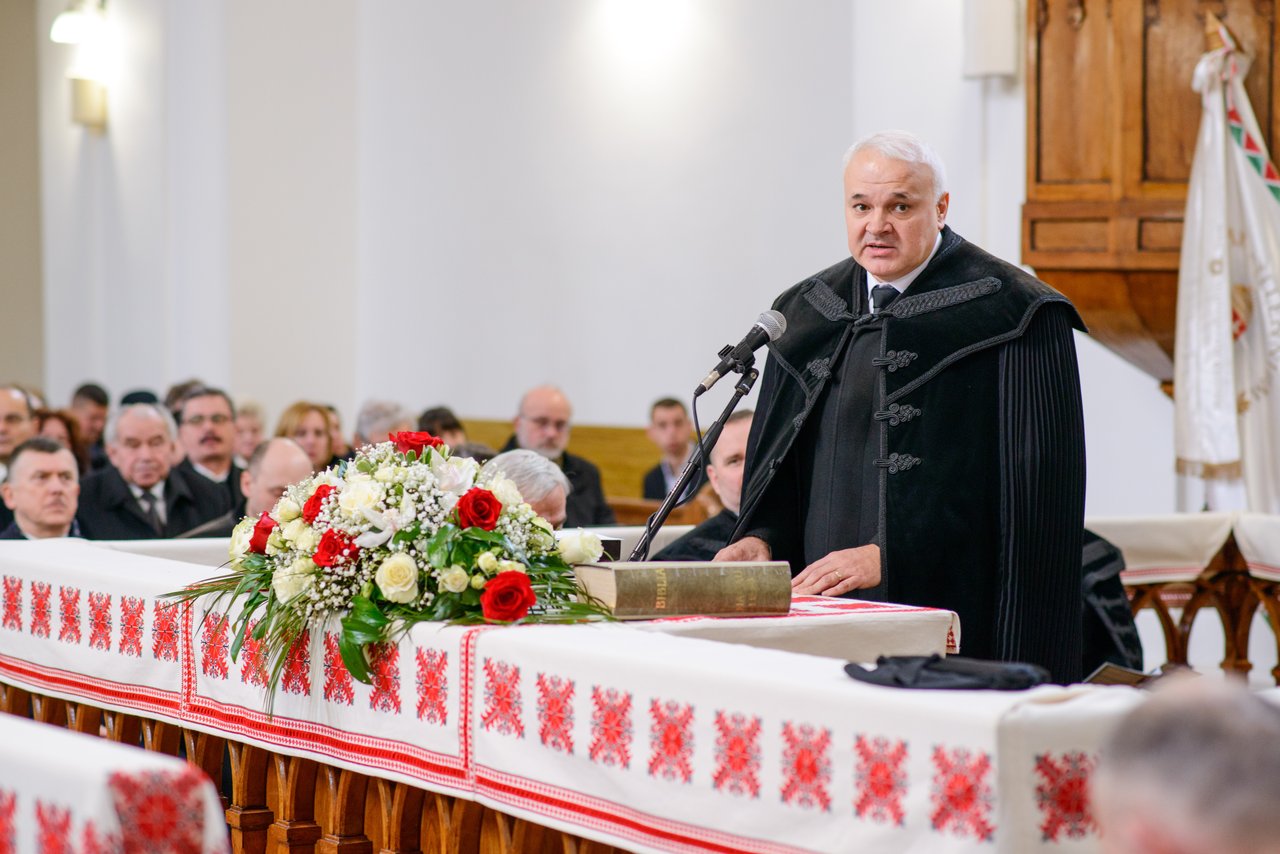
“Don't be afraid! The Lord is with you!” Scripture encourages us several times, giving hope to all of us. Following a time of thanksgiving, the Reformed Church in Transcarpathia proclaimed 2023 to be the Year of Hope. Sándor Zán Fábián, the newly elected bishop, emphasized that we must always rely on God, have faith and trust in Him. The Book of Job also calls us to hope: "At least there is hope for a tree: if it is cut down, it will sprout again, and its new shoots will not fail. Its roots may grow old in the ground and its stump die in the soil, yet at the scent of water it will bud and put forth shoots like a plant" (Job 14:7-9). Bishop Sándor Zán Fábián said in his message that “although we face all kinds of difficulties, and according to the statistics, we decline in numbers, we still must have hope. If God cares for the birds of the air, if the cut down tree sprouts, then how much hope should a follower of Christ have?" Praying for God to renew the congregation with the power of His Holy Spirit, the bishop asked for their hearts to be filled with gratefulness and hope.
At the assembly, Sándor Fábián Zán and the elected members of the Synod took an oath of office led by Róbert Géresi, bishop of the Reformed Christian Church in Slovakia, and Károly Fekete, bishop of the Transtibiscan Reformed Church District. The bishops asked for God's blessing on the life and ministry of the elected leaders.
In his welcoming address, Gábor Danku – lay president of the church district– spoke about the importance of ordained and lay leaders of the church cooperating and encouraging each other in their ministries. Quoting the message to the Corinthians in his present address, Danku reminded us that "our competence comes from God".
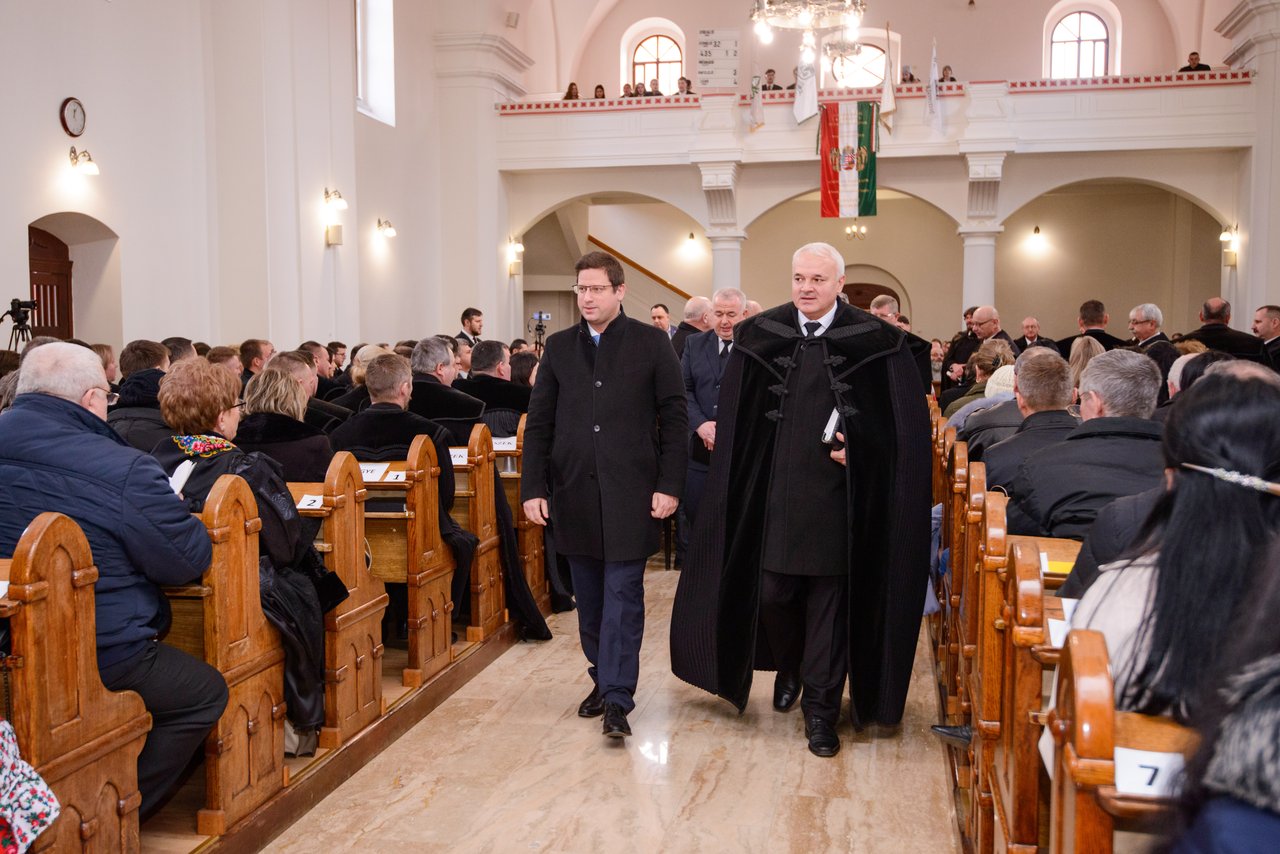
The assembly was also attended by Gergely Gulyás, Minister of the Prime Minister's Office, who called the Christian faith the key to survival. He encouraged Transcarpathian Hungarians living through this difficult time with the following Bible verse: "persecuted, but not abandoned; struck down, but not destroyed." (2 Cor 4:9). This verse can be seen on the memorial to the victims of the 1956 firing squad located in front of the Hungarian Parliament building.
Gergely Gulyás stressed how Hungary is taking responsibility for Hungarian communities living outside its borders. Currently, the motherland is helping the Hungarian community in Transcarpathia, providing humanitarian aid to Ukraine, and welcoming and caring for hundreds of thousands of refugees. The Hungarian Reformed Church Aid and the Reformed Church in Transcarpathia both play an important role in delivering aid. Additionally, Gergely Gulyás underlined how the historical depth of Christian faith has been the key to survival in times like these. We must, therefore, have faith that we can restore the communities, families, churches, and schools in Transcarpathia that are providing the framework for Hungarian life.
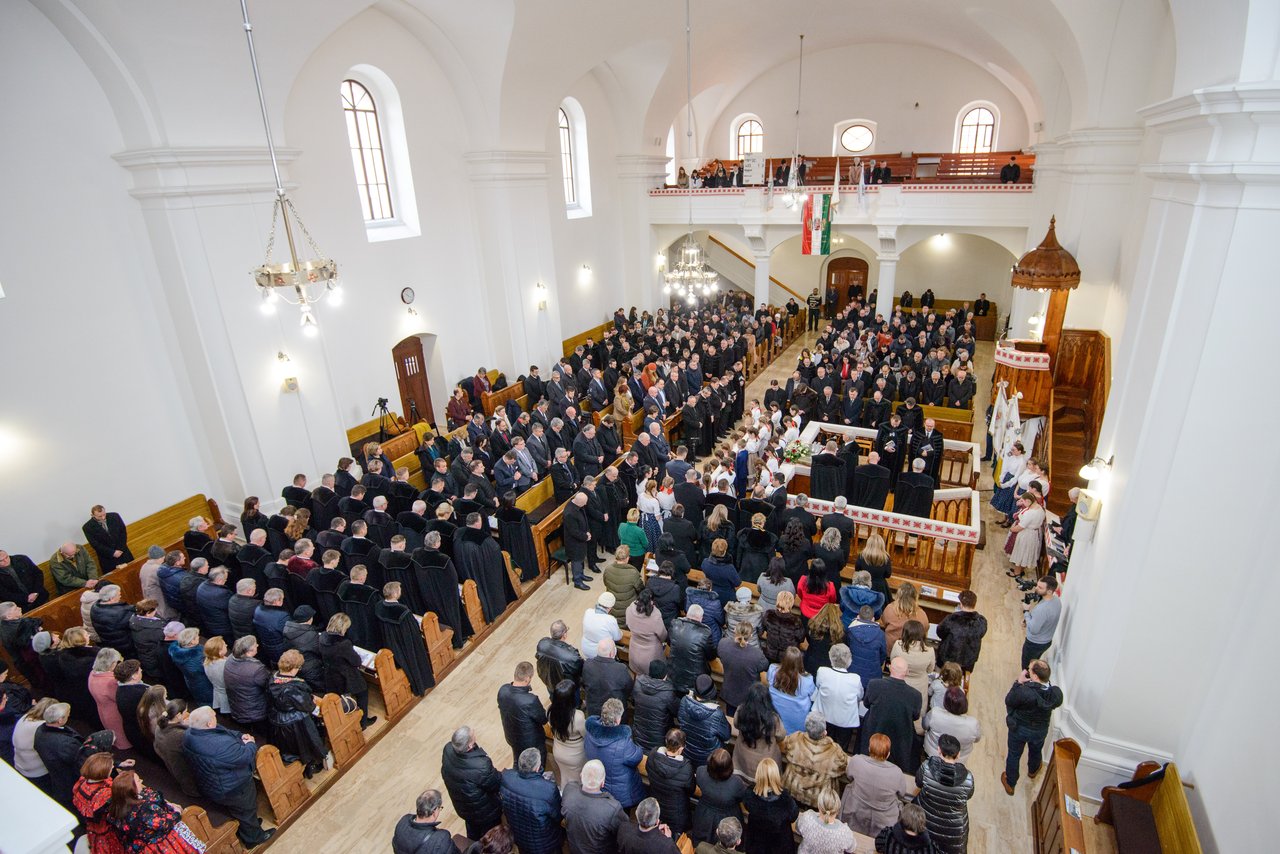
Volodymyr Chubirko, president of the Transcarpathian County Council, also greeted the participants, thanking the Hungarian government for all its support and expressing his hope that the people of the multi-ethnic Transcarpathian region will be able to live in peace in the future.
In his closing remarks, Bishop Sándor Zán Fábián asked prayers for shalom to finally come, and for the dying communities to revive. We hope that by the “scent of water” these communities “will sprout again, and its new shoots will not fail.”